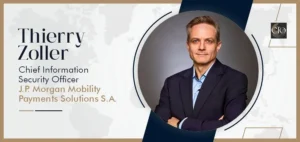Leadership That Inspires Loyalty and Performance
In today’s fast-paced, hyper-connected, and rapidly evolving business environment, there is one leadership quality that stands above all the others in relevance: trust. It is the invisible adhesive that unites teams, stimulates engagement, unleashes creativity, and fuels sustained performance. Leadership without trust is just authority. With trust, leadership is transformed.
But trust is not established by tenure or title—it is created by behavior over time, emotional intelligence, and uncompromising integrity. Leaders who build loyalty and propel performance know that trust is not a virtue; it is a strategic asset.
Trust as the Foundation of High-Performing Teams
Trust is the foundation of all successful human relationships, and in the workplace, it supports cooperation, communication, and innovation. In a culture of trust, people will be more likely to take risks, exchange ideas, speak up, and perform the little things. They are empowered not just because they have to be but also because they have faith in their leader and organization.
Conversely, in low-trust environments, fear, uncertainty, and micromanagement prevail. Productivity suffers. Innovation stalls. Talent walks.
Modern leaders understand that building trust is not a one-time event—it is a daily commitment to transparency, empathy, and reliability. It is seen in how feedback is delivered, how recognition is given, how decisions are made, and how failures are handled. In short, trust is not what leaders say—it’s what they consistently do.
Winning Loyalty in an Age of Choice
Millennials and Gen Zers, the current workforce, wish to be motivated less by framework and increasingly by purpose, honesty, and values alignment. They no longer remain loyal to companies—instead, they are committed to cultures, leaders, and causes in which they believe.
Loyalty, consequently, is not hierarchical. It is evoked. And the greatest leaders evoke loyalty by being ferociously human and ferociously credible. They listen actively, speak openly, own their errors, and decide on fairness. They do not command loyalty—they repay it.
By being respectful, by giving a hand up, and by creating psychological safety, leaders create a place where employees are not only kept but thoroughly invested. And in that investment is hidden discretionary effort—effort that generates innovation, customer satisfaction, and long-term success.
Trust Fuels Performance—Individually and Organizationally
There is a causal link between performance and trust. Trusting leaders free performance because they give people freedom, eradicate fear, and create confidence. In trusting cultures, individuals behave with more clarity, ownership, and speed—not because they are watched, but because they want to give their best.
Organizationally, trust results in reduced turnover, quicker action, reduced silos, and more robust cross-functional collaboration. It provides the setting for resilience in adversity and flexibility in change. It also fortifies stakeholder relationships from investors through customers, who increasingly identify with brands perceived as trustworthy and ethical.
Briefly, the higher the trust, the more performance becomes a team effort. The lower the trust, the more performance is a fight.
Creating a Culture of Trust: A Leadership Priority
Trust can’t be farmed out. It has to be demonstrated from the top and instilled in every leadership level. Self-awareness starts it—leaders need to know how they’re impacting others with what they say, how they’re saying it, and where they’re saying it. Words and actions need to line up.
Some of the most important trust-based leadership traits are:
- Transparency: Telling the truth about context, reason, and vision generates transparency and dispels rumor.
- Accountability: Holding oneself and others to account in a reasonable and fair way.
- Empathy: Seeing and acting from the emotional truth of others—instead of their performance statistics.
- Competence: Exemplifying not just knowledge but sound judgment and an ability to handle complexity.
Leaders who embody these values establish a culture of integrity where trust is organizational DNA.
Trust in the Age of Hybrid Work
The emergence of remote and hybrid work styles has further increased the value of trust. Without proximity management, leaders have to lead through influence, intent, and connection now. Micromanagement, which was once ineffective, is now poisonous.
On this, trust is the bridge that extends distributed teams. Leaders need to prioritize result over appearance, empower workers, and focus on regular, meaningful communication. Working remotely is a platform for innovation and flexibility when there is high trust and kills culture and performance when there is low trust. Constructing virtual trust takes the same building blocks as in-person trust—just more intentionally, more often, and with more empathy.
Conclusion: Trust Is the Differentiator
Today, leadership isn’t about control—today, leadership is about connection. In an environment of disruption, complexity, and option, it is trust that allows leaders to mobilize teams, get through times of crisis, and create lasting legacies.
The most inspiring leaders and those who get results are not necessarily the loudest or the strongest. They are the ones who report with clarity, consistency, and compassion. They build rooms where other people feel heard, seen, and valued. And as a reward, they receive much more than compliance—they receive commitment.
Because at the end of the day, trust is not good leadership—it’s good business.
Read More: Rethinking Disruption as a Catalyst




